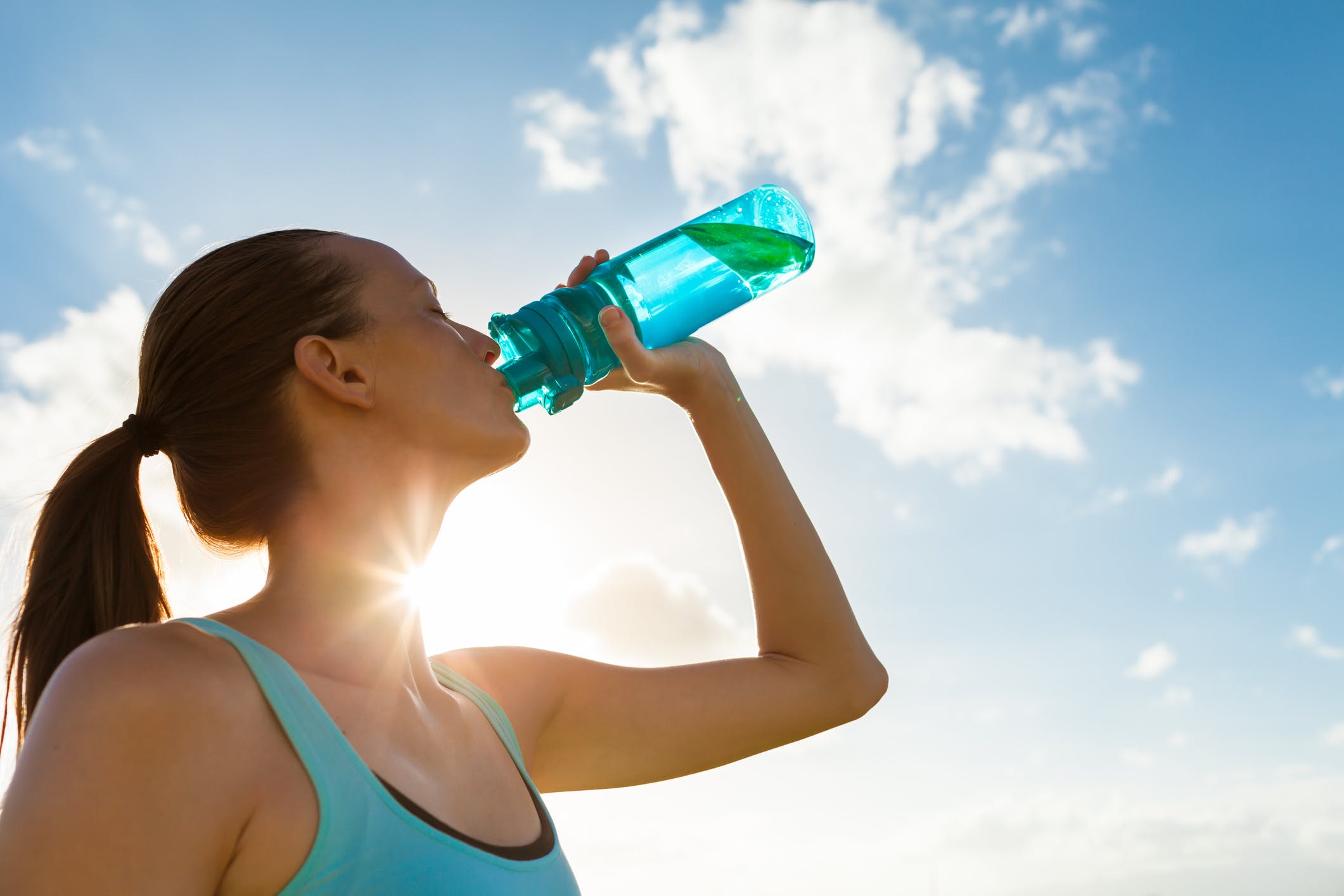Have you ever wondered how you’ve managed to gain five pounds in a single day? It can get a little frustrating, but, most of the time, these fluctuations are absolutely normal. In fact, some individuals can gain up to 10 pounds in a day — all because of water weight.
Water weight isn't a bad thing! As a matter of fact, it means your body is functioning as it should, holding on to water that it loses when you burn energy. To better manage your weight and keep the water in your body balanced, it’s important to understand just how water weight works.
Here’s what you need to know:
-
Our weight is constantly changing throughout the day.
We never weigh exactly the same throughout any given day. Your diet, exercise, and even your breathing all change your overall body weight, minute by minute. Try weighing yourself before and after using the bathroom – the number will be different even when you haven’t eaten anything! The number on the scale tells you very little about what’s inside your body. Even if you’re weighing yourself on a body composition scale, the number can be skewed depending on your hydration levels.While the best time to weigh yourself is in the morning before you eat or drink anything, it’s still not a true measure because you’re slightly dehydrated when you first wake up. However, weighing yourself without clothing first thing in the morning helps you standardize a measurement as much as possible. This is the best way to track patterns and progress. To understand your body, I suggest observing how much you sweat and how your body weight changes throughout the day for a week or two. By the end, you’ll learn a few interesting things about your body and how it works!
-
What we eat and drink affects water weight fluctuations.
Salt, bread, pasta, and sugar are all foods that actually absorb water in your GI tract. While that increases the number on the scale, the weight gain doesn’t necessarily reflect fat gain. Over time, your weight normalizes as your kidneys filter out excess salt and the carbohydrates get used up or stored. If you’re exercising, drinking water, and consuming enough fluid-balancing electrolytes, your weight will remain unaffected. If you don’t, excess carbohydrates may get stored, depending on your metabolic rate. -
You can manage water weight gain.
The best way to manage water weight is to understand how your body handles it. Do you get bloated after eating a high-sodium meal at a restaurant? Does your body weight fluctuate more than eight pounds a day? The more you know about your body, the better you can manage your weight. Don’t worry too much about the number on the scale and focus more on building healthy habits.Drink plenty of water and eat foods with a high water content, like citrus fruits, watermelon, and cucumber. Consume foods that are rich in magnesium, like leafy greens and nuts, and foods that contain potassium, like bananas, sweet potatoes, and avocados. Broths, pickles, and sea salt are natural sources of sodium. All of these nutrients function together to keep the water in your body balanced. And exercising daily helps eliminate excess cellular water weight as you sweat.
The bottom line: don't fear water weight gain! It's not typically a reflection of your actual weight. The number on the scale will change throughout the day depending on your diet, level of physical activity, and other habits. Understanding water weight and how your body changes on a day-to-day basis can help you better take care of your body to make sure that it’s healthy and balanced. Accept that weight fluctuations can be normal and do your part by staying hydrated, eating healthy, and exercising regularly!
Nutritional information
Recipe: Creamy Green Strawberry Dream Serving in this recipe:1
- Calories: 236.6
- Total Fat: 3.6 g 5.5%
- Saturated Fat: 0.4 g 1.9%
- Cholesterol: 0 mg 0%
- Sodium: 358.7 mg 14.9%
- Total Carbs: 45.7 g 15.2%
- Dietary Fiber: 9.9 g 39.4%
- Sugar: 22.1 g
- Protein: 8.1 g 16.2%
- Vitamin A: 481.9% Vitamin C: 244.1%
- Calcium: 68.5% Iron: 26.1%
* Percent Daily Values are based on a 2,000 calorie diet. Your daily values may be higher or lower depending on your calorie needs.




























